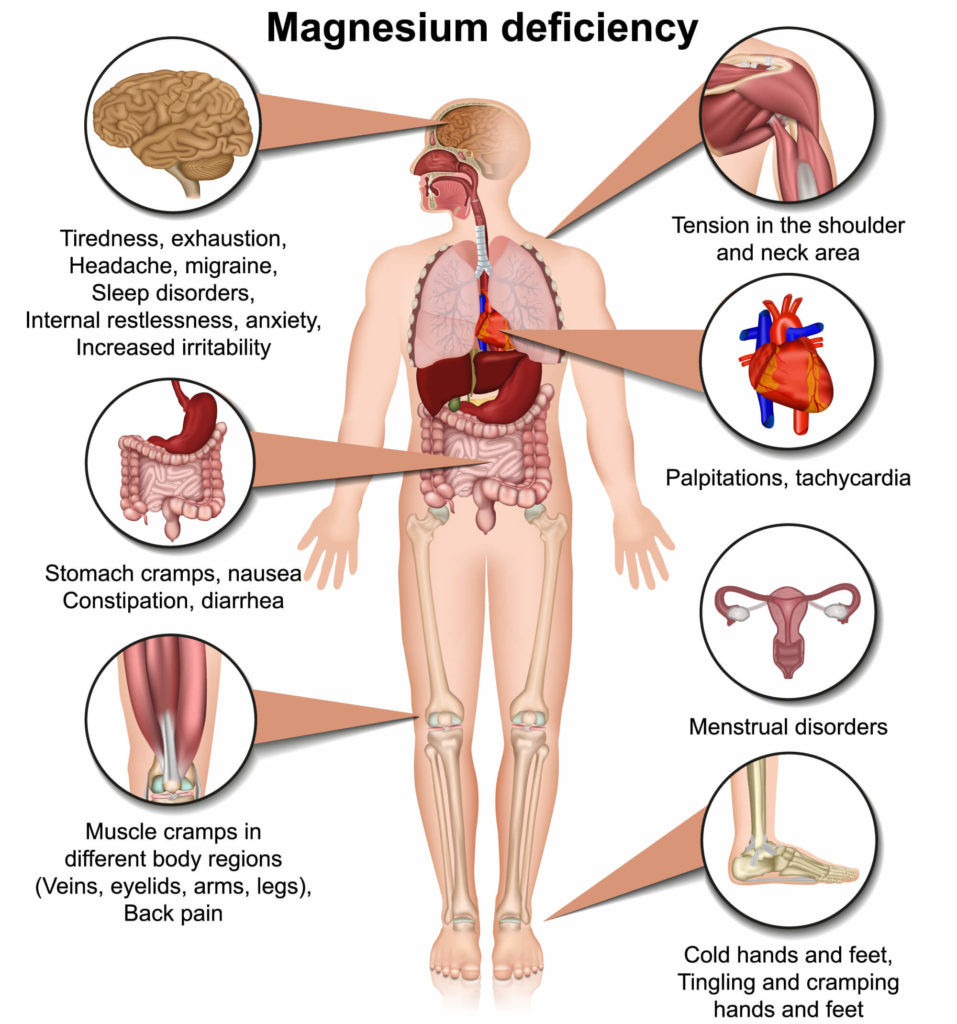When someone struggles to get a good night’s rest, their health may suffer, making sleep a health priority. Fortunately, simple and free activities like exercise and breathing techniques may help improve sleep quality. Unfortunately, sometimes these actions alone aren’t enough to help. And, with healthcare costs rising in places like the United States, many people are turning to over-the-counter sleeping aids. Taking supplemental magnesium for sleep, for example, is incredibly common.
What is Magnesium?

Time for a quick chemistry lesson. Magnesium is an element, found in group 2 on the periodic table, meaning it’s an alkaline earth metal. Notably, this group is found in nature and is somewhat reactive. Now, magnesium itself doesn’t exist in nature; rather, it only occurs naturally when combined with other elements.
How Does Magnesium Affect the Body?
The human body needs to maintain certain levels of this element in order to function properly. That’s because magnesium is involved in several biological processes, like energy production and nerve functioning.[1]
How Much Magnesium Do You Need?
How much of this element someone needs will vary by sex, age, and medical conditions. For example, healthy adult cis women (19-30 years) who aren’t pregnant or lactating will need 310 mg of this mineral a day. Those who are pregnant in this age group will need 350 mg, and lactating individuals 310 mg.[2]
Magnesium Deficiency

What happens when someone doesn’t have enough of this element in their body, though? Some symptoms of mild deficiency include weakness, fatigue, and nausea. Moderate deficiency can mean cramps, seizures, and numbness. Severe deficiency can translate to decreased levels of calcium and potassium; these deficiencies may, in turn, create even more problems. That all makes it important to keep magnesium levels stable.
Who is at Risk of this Deficiency?
Generally, most people don’t have to worry about being magnesium deficient. Some groups, though, are more prone to this deficiency than others. These groups include elderly people, alcohol-dependent individuals, and those with type 2 diabetes.[3]
What are Natural Sources of Magnesium?

So, just where can you find magnesium? Plenty of places, since it’s one of the most common elements on Earth. For example, there are lots of foods that contain this element. Popular magnesium rich-foods include:
- Almonds
- Avocados
- Bananas
- Cacao
- Peanut Butter
For most people, eating a balanced diet is enough to get the magnesium they need. People prone to deficiencies, though, might find that a magnesium supplement can help with their symptoms, including fatigue.[4]
Does Magnesium for Sleep Work?
Do magnesium supplements for sleep actually work? And, if so, what type of magnesium works best?
Research says yes, magnesium supplements may work for some people in this regard, especially if they deal with magnesium deficiencies. For example, one 2012 study examined supplemental magnesium intake in older people with insomnia; the study found that both sleep time and quality improved with supplements.[5] Another study found that these supplements may help recovering alcoholics get better sleep as well.[6] So, for those who deal with magnesium deficiencies, these medications may assist them with their rest. In fact, they may even improve other deficiency-related symptoms as well.
Which Form of Magnesium is Best for Sleep?
Supplements that the body more readily absorbs work best. Some research suggests that forms of magnesium glycinate may fit that bill, particularly for those who are at higher risk of nutritional deficiencies.[7][8] Glycinate, like magnesium, is also a common over-the-counter medication on its own. Fortunately, research suggests glycinate can induce drowsiness, making it a safe and effective sleep aid.[9]
Final Thoughts

Magnesium is an important element that people need to complete several biological processes. When someone has a magnesium deficiency, their health—including their sleep—may decline. That’s where supplements may help; research suggests that magnesium for sleep can be effective, particularly if someone is dealing with a deficiency.
Terms
- Alkaline Earth Metal: Found on the second column of the periodic table of the elements. These elements are somewhat reactive and can be found in nature in some form.
- Sleep Latency: How long it takes to fall asleep.
References
[5]Abbasi, B., Kimiagar, M., Sadeghniiat, K., Shirazi, M. M., Hedayati, M., & Rashidkhani, B. (2012). The effect of magnesium supplementation on primary insomnia in elderly: A double-blind placebo-controlled clinical trial. Journal of research in medical sciences : the official journal of Isfahan University of Medical Sciences, 17(12), 1161–1169. PMID: 23853635
[6]Hornyak, M., Haas, P., Veit, J., Gann, H., & Riemann, D. (2004). Magnesium treatment of primary alcohol-dependent patients during subacute withdrawal: an open pilot study with polysomnography. Alcoholism, clinical and experimental research, 28(11): 1702-1709. https://doi.org/10.1097/01.ALC.0000145695.52747.BE
[9]Kawai, N., Sakai, N., Okuro, M., Karakawa, S., Tsuneyoshi, Y., Kawasaki, N., … Nishino, S. (2015). The sleep-promoting and hypothermic effects of glycine are mediated by NMDA receptors in the suprachiasmatic nucleus. Neuropsychopharmacology : official publication of the American College of Neuropsychopharmacology, 40(6): 1405–1416. doi:10.1038/npp.2014.326
[2,3]National Institutes of Health. (2019). Magnesium. Retrieved from https://ods.od.nih.gov/factsheets/Magnesium-HealthProfessional/
[7]Schuette, S.A., Lashner, B.A., Janghorbani, M. (1994). Bioavailability of magnesium diglycinate vs magnesium oxide in patients with ileal resection. Journal of parental and enteral nutrition, 18(5): 430-5. DOI: 10.1177/0148607194018005430
[1,4]WebMD. (n.d.). Magnesium. Retrieved from https://www.webmd.com/vitamins/ai/ingredientmono-998/magnesium
[8]WebMD. (n.d.). Magnesium glycinate tablet. Retrieved from https://www.webmd.com/drugs/2/drug-152090/magnesium-glycinate-oral/details
Disclaimers
This article is for reference purposes only; it is not designed to diagnose, treat, cure, or prevent any disease or condition. Any and all health questions should be directed toward a doctor or other licensed professional.


